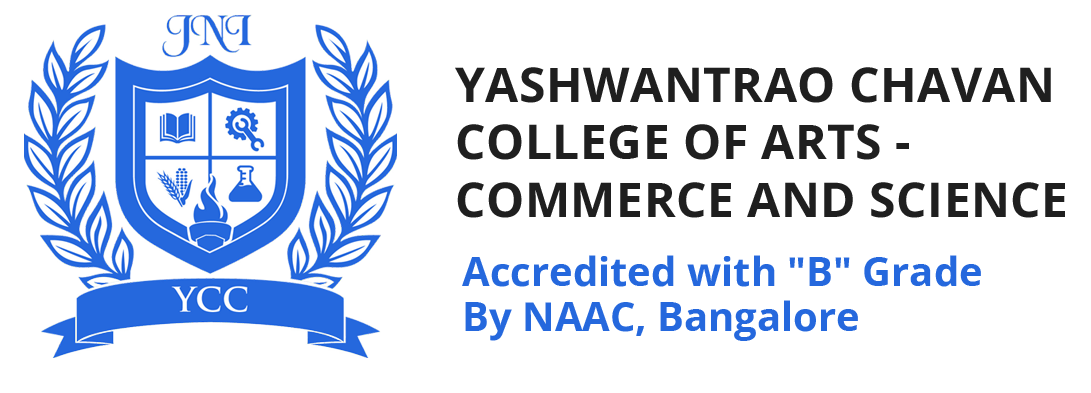Post Graduate Courses
Master of Commerce (M Com):
| Sem-I | Sem-II |
| Paper Name | Paper Name |
| Strategic Management | Research Methodology For Business |
| Economic For Business Decision | Macro Economics Concepts And Application |
| Cost And Management Accounting | Corporate Finance |
| Business Ethics And Corporate Social Responsibility | E-Commerce |
| Sem-III | Sem-IV |
| Paper Name | Paper Name |
| Advanced Financial Accounting | Corporate Financial Accounting |
| Direct Tax | Indirect Tax – Introduction of Goods and Service Tax |
| Advanced Auditing | Financial Management |
| Project Work | Project Work |
Program Outcome (POs)
Department of Commerce- Master of Commerce (M. Com)
PO1Advanced Knowledge: Demonstrate advanced knowledge and understanding of key concepts, theories, and principles in commerce, accounting, finance, economics, marketing, and related fields.
PO2 Critical Thinking: Develop critical thinking and analytical skills to evaluate complex business problems, make informed decisions, and propose effective solutions.
PO3 Research Skills: Acquire advanced research skills to conduct independent and original research in the field of commerce, including the ability to use research methodologies, analyze data, and draw meaningful conclusions.
PO4 Communication Skills: Enhance oral and written communication skills, including the ability to present complex ideas and information effectively to diverse audiences.
PO5 Ethical Awareness: Develop a strong ethical awareness and understanding of the social and ethical responsibilities associated with business practices.
PO6 Global Perspective: Gain a global perspective on commerce and business, understanding the impact of international factors on economic and business environments.
PO7 Specialized Knowledge: Acquire specialized knowledge in a chosen area of commerce, such as finance, accounting, marketing, human resources, or international business.
PO8 Leadership and Management Skills: Develop leadership and management skills necessary for roles in business and commerce, including the ability to lead teams, manage resources, and make strategic decisions.
PO9 Adaptability: Demonstrate adaptability to changing business environments and evolvingindustry trends, including the ability to apply knowledge and skills to new and emerging challenges.
PO10 Entrepreneurial Skills: Foster an entrepreneurial mindset and develop the skills needed toidentify and pursue business opportunities, innovate, and contribute to economic development.
Program Specific Outcome (PSOs)
Department of Commerce- Master of Commerce (M. Com)
- PSO1. To apply the Concepts of Accountancy and Financial Management in the Preparation of Financial Statements and Cash Flow Statement.PSO2. To analysis and Interpretation of Financial Statements and make effective decisions.
PSO3. To apply the Concepts of Direct Taxes in Filing of Income Tax Returns and Concepts of Goods and Service Taxes in filing Goods and Service Tax Returns.
Course Outcome (COs)
Department of Commerce- Master of Commerce (M. Com)
MCOM-I -SEMESTER: I
CB1BEC04: BUSINESS ETHICS.
CO1. Students will be able to analyze the sensitivity of ethical responsibility
CO2. Students would know how to encourage individuals and organizations towards ethical behavior
CO3. Students would be able to identify ethical dilemmas and apply ethical theories
CO4. Students would be able to evaluate the legal and regulatory framework of Corporate Governance
CB1SMC01: STRATEGIC MANAGEMENT
CO1. Students will gain detailed knowledge of different levels of strategies been adopted in the organizations
CO2. Students would get to identify the right tool to select, evaluate and control the strategiesfor the success of any business enterprise
CO3. Students will get an exposure to the contemporary strategies which are relevant in today’s global economy.
CO4. Students are also exposed to the latest business models, use of technology for theenhanced competitive edge.
CO5. Students would get knowledge of elementary information about government initiatives to promote businesses.
CB1EBC02: ECONOMICS FOR BUSINESS DECISIONS
CO1. Understand the nature of macroeconomics course and introduce to the students to grasp fully the theoretical rationale behind policies at the country.
CO2. Study the basic macroeconomic concepts those strengthen analysis of crucial economic policies.
CO3. Understand the determinants of demand, application of elasticity of demand and supply economic issues. The students to grasp easily the theory of consumer preference and budget constraint
CO4. Study the aim of economic development is to improve the material standards of living byraising the absolute level of PCI and it is also stated objectives of policy of the governments of all developing countries.
CO5. Discuss the basic concept of production function, law of variable proportion, return to scale, least cost factor combination for a given output and learning curve.
CO6. Understand the concept of different market structure like monopoly, monopolistic competition perfect competition and oligopoly. To enable the students to clarity about strategic making in collusive and non-collusive oligopoly, game theory and application of model of prisoner’s dilemma in market decisions.
CB1CMC03: COST AND MANAGEMENT ACCOUNTING
CO1. Familiarization with the Management Control Systems.
CO2. Ability to understand Managerial Behavior and Control Structure prevalent under varied business environment.
CO3. Describe the process of preparing budget and prepare different types of budget for better decision making and control
CO4. Understand the characteristics of Marginal and absorption costing and specificaccounting thereof.
CO5. Analyze and compute variances and differentiate between controllable and uncontrollable variance.
CO6. Skill to evaluate the Segment Business Units.
CO7. Familiarization with Contemporary issues in management. Clarity about the reporting requirements of management.
